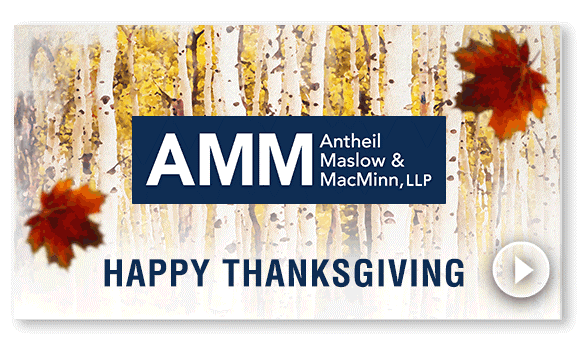2021 Decennial Report Requirements for Pennsylvania Entities
Written by Stephanie M. ShortallIn 2021, entities formed in Pennsylvania and entities formed in other states that have registered to do business in Pennsylvania must file a Decennial Report with the Department of State. This requirement applies to business corporations, non-profit corporations, limited liability companies, limited partnerships, and limited liability partnerships. If a report is not filed, the entity will no longer have exclusive use of its company name or trade name and the name will become available for others to use it. While an entity can file after the December 31, 2021 deadline, a third party registering with the name during the gap period will have rights to the name, and the original entity will not be permitted to reinstate its exclusive rights to the name.
Earlier this year, the Department of State mailed notices to the registered address for each entity regarding its name, however, you should not rely on receiving such a notice to determine whether or not you have to file. All entities are required to file unless they made new or amended filings between January 1, 2012 and December 31, 2021.
The required forms can be found on the Department of State website at https://www.dos.pa.gov/BusinessCharities/Business/Resources/Pages/Decennial-Filing.aspx. There is a filing fee of $70, and the filing deadline is December 31, 2021.
If you are not sure whether you need to file this report for your entity, or if you have any questions regarding this requirement, feel free to contact us. We caution you not to rely upon the Pennsylvania Department of State’s website search feature to tell you whether or not your entity is required to file the decennial report.
Associate
215-230-7500, ext. 123
jdickerson@ammlaw.com
Practice Groups
Education
- Widener University, Delaware Law School, J.D. 2017
- Holy Family University, B.S. in Psychology, 2013
Bar Admissions
- Pennsylvania
On January 7th, the Treasury Department announced that the Paycheck Protection Program, a unique program that kept many businesses afloat during the initial months of the pandemic, will re-open the week of January 11 for a second round of loans for new borrowers and certain existing PPP borrowers. To promote access to capital, initially only community financial institutions will be able to make First Draw PPP Loans beginning on Monday, January 11, and Second Draw PPP Loans on Wednesday, January 13. The PPP will open to all participating lenders shortly thereafter.The PPP fund provides forgivable loans to businesses, providing they maintain their payroll.
Elizabeth J. Fineman, a Partner of the Bucks County law firm of Antheil Maslow & MacMinn, LLP, received a Special Achievement Award from the Pennsylvania Bar Association at a virtual luncheon on Thursday, November 19th. The award recognizes Ms. Fineman for stepping up to fill a co-editor position of the PBA Family Law Section Pennsylvania Family Lawyer newsletter, one of the association’s largest section publications. Fineman practices exclusively in domestic relations matters and handles a variety of issues, including divorce, child support, alimony/spousal support, marital taxation, equitable distribution and child custody matters. She has handled many high-income support cases involving an intricate knowledge of both family law and complex financial issues.
Holiday Custody Planning: The Time is Now
Written by Elizabeth J. FinemanWhile it is not yet Halloween, it is already time to starting thinking about your winter holiday custody schedule. Thanksgiving is only about a month away followed in December by Hanukkah, Christmas and Kwanzaa. Now is the time to take out your Custody Order to determine what the schedule is for this year. If you do not have a Custody Order or agreement, now is the time to start having a discussion with your child’s other parent to determine a holiday custody schedule. If you cannot resolve any disputes, now is the time to have the discussions and if necessary, file to have the courts assist in making a decision. If you wait until the eve of the holiday, it may very well be too late.
In addition to the actual schedule, now is also the time to start having discussions as to whether there will be any travel involved and who else will be at any holiday celebrations. While these may not be issues in most years, travel and who is at the holiday celebrations may very well be at issue in the age of COVID. These issues, along with the actual custody schedule, should be worked out well in advance of the holiday.
Finalizing the holiday custody schedule now will allow you all to have a much more enjoyable and less stressful holiday season.
National Estate Planning Awareness Week 2020: The Importance of an Estate Plan
Written by Elaine T. Yandrisevits
National Estate Planning Awareness Week runs from October 19-25, 2020. First celebrated in 2008, this week highlights the importance of estate planning and its vital role in your overall financial health. By some estimates, up to 50% of Americans have not prepared any estate planning documents, which include documents effective both during life and after death. The uncertainty of this year only highlights the importance of creating or updating your estate planning documents.
Many people assume that estate planning documents are necessary only for individuals or families with a high net worth; however, everyone can benefit from having an estate plan. The most significant benefit is that estate planning documents, which can include a Will, Revocable Trust, and/or various types of Irrevocable Trusts, allow you to choose the beneficiaries of your estate, the amounts they receive, and how they receive those amounts. Without an estate plan, the intestacy laws of your state will determine to whom and how your estate will pass. It is entirely possible that intestacy laws may not distribute your estate how you would expect it would pass, or how you would want it to be distributed. An estate plan can also take into account various concerns involving the distribution of an estate, such as beneficiaries who may need time to develop prudent money management skills; those with special needs to ensure continued eligibility for various public benefits; or beneficiaries with significant wealth on their own or liability concerns who want to keep assets out of their own estates. Intestacy laws do not account for these scenarios.
Developing or updating an estate plan also ensures that your estate has accounted for the various taxes that may be assessed as a result of your death, or any changes in the law. In the last year alone a major new law with respect to the distribution of inherited qualified plans, the SECURE Act, took effect; and there may be accelerated changes with respect to the Federal Estate Tax on the horizon. Creating an estate plan or revisiting your older documents allows for your estate to be up to date with the current legal landscape.
Estate planning documents also include Powers of Attorney for both financial and medical decisions, as well as Advance Medical Directives (“Living Wills”) for end-of-life decisions. These documents are effective during your lifetime, and allow another individual (or individuals) to make decisions on your behalf if you are unable to do so. Financial and healthcare Powers of Attorney and an Advance Medical Directive clarify who may make these important decisions, as well as your wishes, before a true “need” arises.
Just as you regularly review your budget and meet with a financial adviser to discuss short- and long-term objectives, meeting with an attorney to update (or create!) your estate plan is an important step to ensure your personal and financial wellbeing.
AMM is pleased to announce the addition of Lynelle A. Gleason, joining the firm’s family law and estate planning and administration practice groups.
In her family law practice, Ms. Gleason handles a variety of matters, including divorce, child support, alimony, spousal support, equitable distribution and child custody. Gleason works closely with her clients through all phases of negotiation and, if necessary, litigation to resolve their family law-related matters.
Ms. Gleason is also experienced in estate law, where her practice includes the drafting of wills and administration of estates.
Associate
215-230-7500, ext. 117
lgleason@ammlaw.com
Practice Groups
Education
- Widener University School of Law, Juris Doctorate, 1996
- Temple University, B.A., 1989
Bar Admissions
- Pennsylvania
- United States District Court for the Eastern District of Pennsylvania
- United States Supreme Court
Our Commercial Real Estate Practice Group provides a full range of services for real estate stakeholders in the Greater Philadelphia area (including Bucks and Montgomery Counties). AMM attorneys are known for their business acumen, market savvy, technical skills, and sophisticated understanding of the nuances of real estate transactions. Our clients include property owners, purchasers, landlords, tenants, property management companies, contractors, commercial condominium associations, and brokers. Our experience spans a broad spectrum of real estate matters. We draw on the talents of our Commercial Litigation team as needed for dispute resolutions involving real estate.
Our Real Estate practice group includes highly experienced practitioners well versed in real estate, corporate and finance law. Our team approach enables us to provide a wide range of highly effective, responsive and cost-efficient legal services.
Key Services
• Negotiation and drafting of leases and related financial guarantees
• Work-outs and lease restructuring, or
• Lease termination and the orderly eviction of the tenant
• Due diligence reviews including review of existing contracts and leases, zoning and municipal approvals in place or that will be required, and available municipal, county and state grants or special funding
• Resolution of compliance and enforcement matters









